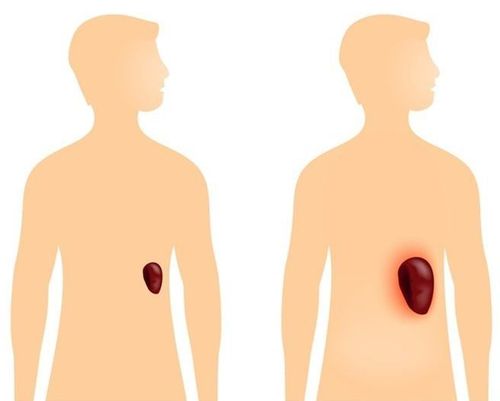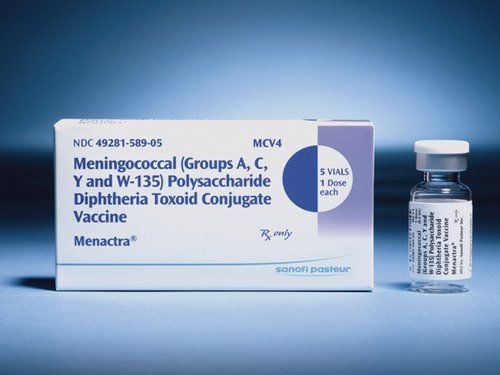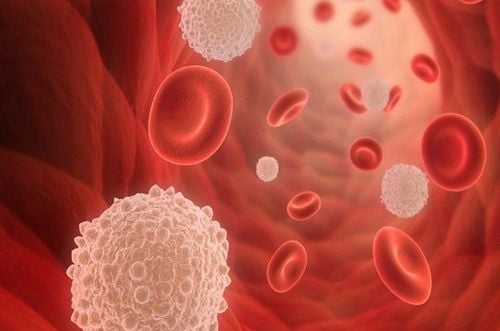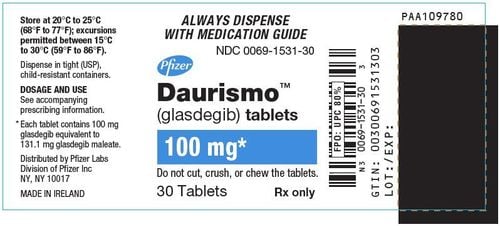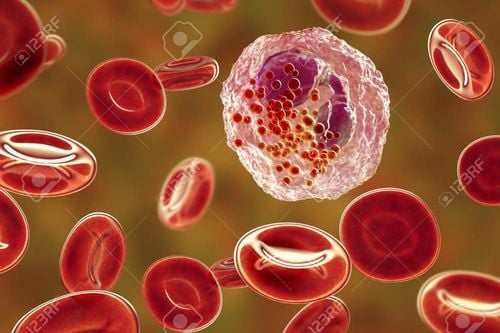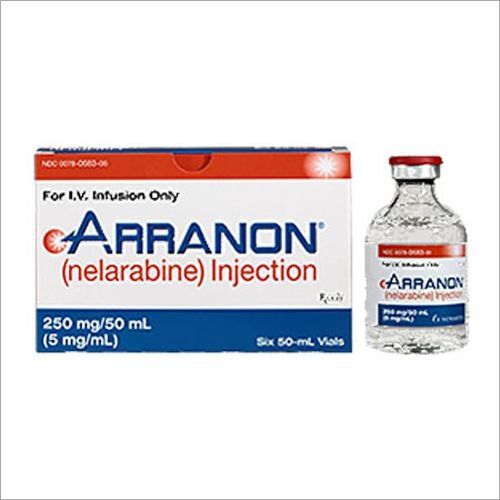This is an automatically translated article.
Mononucleosis, although not dangerous, can cause serious complications if subjective. Therefore, even if only flu-like symptoms such as sore throat and fever appear, the family should take the child to the doctor.
1. Do children with sore throat and swollen lymph nodes have mononucleosis?
Mononucleosis is a disease transmitted by saliva, usually in young people. However, young children are also at risk of catching the virus from sharing cups or spoons from an older sibling, other children's toys, or a kiss from a relative who has the virus.
Symptoms of mononucleosis usually do not appear 4-6 weeks after exposure. If your toddler has mono, his or her symptoms may be similar to those of a cold or flu, including:
Sore throat Swollen glands (in the neck and possibly in the groin and armpits) Fever Older children with mononucleosis often feel tired and weak, have headaches, loss of appetite, and swollen spleen.
For mono, the younger the child, the less severe the symptoms will be. In fact, infected infants and young children often have mild symptoms or are completely asymptomatic.

Trẻ sơ sinh bị bạch cầu đơn nhân thường có triệu chứng nhẹ hoặc không có triệu chứng
2. What causes mononucleosis?
Besides many other viruses, the Epstein-Barr virus (EBV) is the major cause of mononucleosis. Most adults have been exposed to EBV by the time they reach the age of 35.
Toddlers often contract the virus by sucking on toys from other children that are infected with the virus or even through coughing or sneezing from an infected person.
3. How is mononucleosis diagnosed and treated?
The doctor will check if the child is infected with the virus or not if he can exploit the information that the child has been exposed to the virus during the medical examination. Viral diseases are so diverse that diagnosis can be difficult. Blood tests are often indicated in the diagnosis of mononucleosis, but are not very accurate in young children.
Because the virus does not respond to antibiotics, there is no treatment for mononucleosis other than those used to treat colds: Rest, drink plenty of fluids, and antipyretics such as acetaminophen or ibuprofen .

Việc chẩn đoán bạch cầu đơn nhân thường gặp nhiều khó khăn
4. Is mononucleosis dangerous?
The most common complication is a ruptured spleen, which requires emergency care. A blow to an already swollen spleen can cause the spleen to tear. As a result, doctors often advise older children and adults with mononucleosis to avoid contact sports for a month or so.
Other complications include hepatitis , jaundice and swollen tonsils . If your child's throat is swollen, go to the hospital immediately. If your throat is so swollen that it's hard to breathe, call 911.
In other rare cases, mononucleosis can affect other organs in the body such as the blood, central nervous system, or heart. The disease can even be life-threatening in children with weakened immune systems such as in children with HIV/AIDS.
5. How to prevent mononucleosis?
The best way to prevent mononucleosis infection is to prevent the disease from spreading that starts with family members together. However, this is difficult work, because many people get and spread the disease without showing symptoms.
If the child is not yet able to walk, you should keep the child at home, do not let the child touch the toy until the fever is gone. Do not let your child share cups or utensils with an older sibling.
When a child shows abnormal signs of health, parents can take the child to Vinmec Health system for timely examination and treatment.
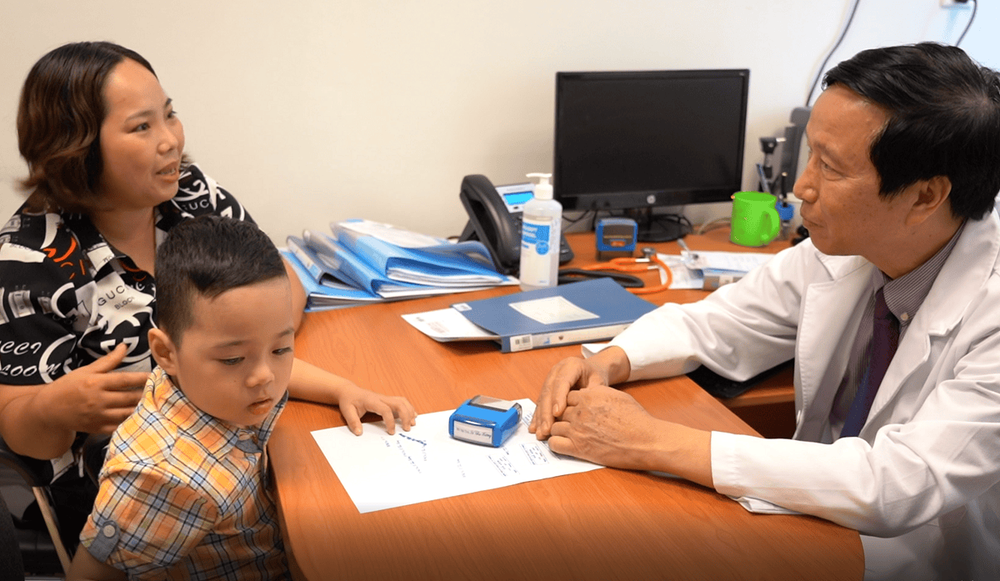
Cha mẹ nên đưa trẻ đến hệ thống Y tế Vinmec để khám khi có dấu hiệu bất thường về sức khỏe
As a key area of Vinmec Health System, Pediatrics Department - Vinmec International General Hospital always brings satisfaction to customers and is highly appreciated by industry experts thanks to the following advantages:
Gathering a team of leading doctors and doctors in Pediatrics: Including leading experts, highly qualified (professors, associate professors, doctorates, masters), experienced, worked in hospitals big hospitals like Bach Mai, 108.. The doctors are all well-trained, professional, have a heart - reach, understand young psychology. In addition to domestic pediatric specialists, the Department of Pediatrics also has the participation of foreign experts (Japan, Singapore, Australia, USA) who are always pioneers in applying the latest and most effective treatment regimens. . Comprehensive services: In the field of Pediatrics, Vinmec provides a series of continuous medical examination and treatment services from Newborn to Pediatric and Vaccine,... according to international standards to help parents take care of their baby's health from birth to childhood. from birth to adulthood Specialized techniques: Vinmec has successfully deployed many specialized techniques to make the treatment of difficult diseases in Pediatrics more effective: neurosurgery - skull surgery, stem cell transplantation. blood in cancer treatment. Professional care: In addition to understanding children's psychology, Vinmec also pays special attention to the children's play space, helping them to have fun and get used to the hospital's environment, cooperate in treatment, improve the efficiency of medical treatment.
Please dial HOTLINE for more information or register for an appointment HERE. Download MyVinmec app to make appointments faster and to manage your bookings easily.
Reference source: Babycenter.com



